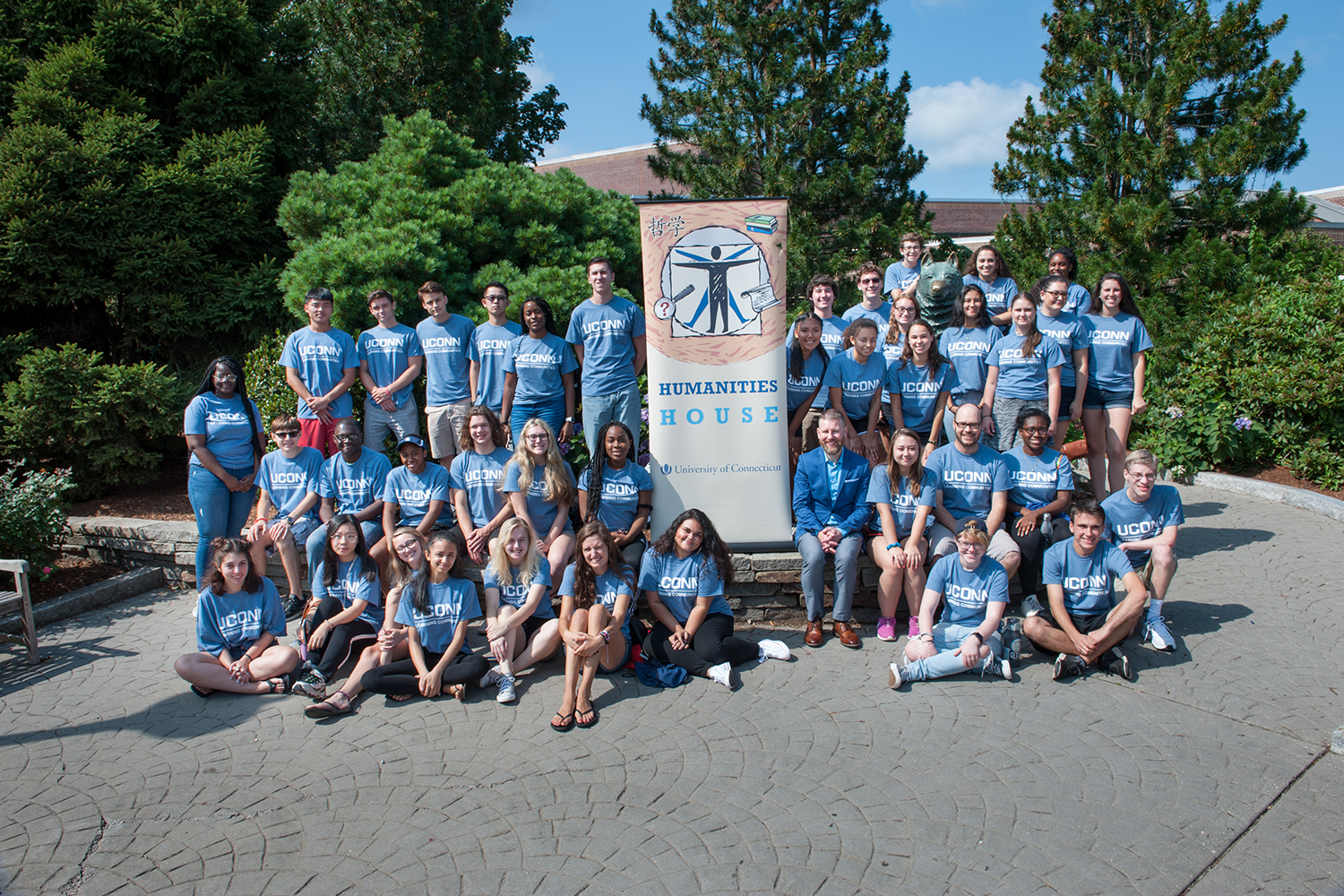According to Associate Professor of Political Science Stephen Dyson, the American career is undergoing a metamorphosis.
Now more than ever, he says, college graduates need transferrable skills to navigate increasingly complex workplaces and job markets. They also must be able to adapt to the changing political and cultural landscape in the United States and abroad.
That’s what drives Dyson’s vision for the Humanities House, the living and learning community he has directed for the past five years. Under his guidance, the House brings together 28 freshmen and 10 sophomore students with different majors under one roof, where they reflect on their academics and connect their experiences to the world they live in—and to each other.
“It says to the students that you’re not just having a series of isolated experiences where you take a class and then you take another class that has nothing to do with the first one and then you go and hang out with friends,” Dyson says.
“It’s that [in actuality], you’re a whole human being and the things that you’re doing in the classroom should be and can be meaningfully integrated with the residential experience that you have.”
UConn’s learning communities connect students with common interdisciplinary interests and provide for-credit courses and extracurricular activities centered around each community’s area of study. The communities are partnerships between academic affairs and residential life, and they are geared toward students at the beginning of their college careers.
Humanities House’s mission is to transform its residents into socially responsible citizens by fostering imagination, creativity, and possibility.
In their freshmen year, Humanities House residents enroll in a weekly Humanities House Connections course, which is divided into two sections.
The first section, “What’s Making Me Think?”, asks students to bring in a topic for discussion from the news, pop culture, or history and present it to the class. The second, “Connections,” asks students to draw connections between the courses they are currently taking.
Students often compare and contrast math classes that are quantitative and analytical with English classes that are literary and philosophical, and they say it helps them understand the applicability of their education.
Cognitive science major Stephen Davey’s ’21 (CLAS) says he presented on meme culture and how the humor of millennials and Generation Z “smashes expectations.”
“I think it’s cool that we get to choose our own topics to pursue, and present the things that we are interested in,” he says. “I explained the complexity of the ‘surgery on a grape’ meme. It’s not traditionally funny, yet it was made culturally relevant and shared hundreds of times.”
Mohamed Ndao ’21 (CLAS), an English major, says that he appreciated learning about disciplines other than his own major.
“[I enjoyed] just hearing about topics that [my classmates] are really invested in and learning about their topic,” he says. “[Each student] comes in with all of their facts, and it serves as a gateway for more questions.”
Julianna Iacovelli ’21 (CLAS), also an English major, says she especially enjoyed Ndao’s presentation on cancelling culture, and likens the activity to having an audience for your own opinion about a topic.
“I love the course because it’s like having your own TED Talk,” she says. “My topic was on movie ratings, and how the system is weird and mysterious, and no one really knows a lot about it.”
Students also participate in major events each semester, which in recent semesters have included outdoor team building, a showing of Swan Lake at the Jorgensen, and a trip to the Mark Twain House. In-house events have included a film series titled “Science Fiction and the Human Experience,” coffee chats and potluck meals.
Dyson’s own scholarship focuses on the intersection of pop culture, science fiction, international relations and political science. He says that he has always thought of movies, television shows, music, and art as being political, and as ways to gauge the political temperature of society.
“They have things to say about human nature and about human social relations, about who does what to whom,” he says. “So I really wanted my professional life to be about more than just social science, and Humanities House gave me that opportunity.”
“Hearing others’ perspective on what I have to say is one of the reasons I joined Humanities House – because I thought that really benefits me, as someone who wants to be a high school English teacher,” adds Iacovelli. “Humanities is about being able to see something from a thousand different views.”



